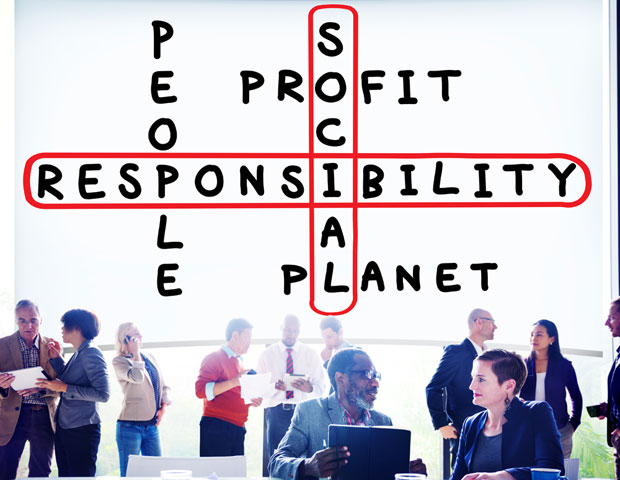The prison workforce development program run by Televerde, an Arizona-based sales, marketing, and tech company, delivers significant economic and cultural value, concludes a study recently conducted at Arizona State University’s Seidman Research Institute.
Televerde trains and employs women incarcerated in Arizona and Indiana, and it offers many of them employment when they leave prison.

Michelle Cirocco, Televerde’s chief social responsibility officer, spoke with the E-Commerce Times about the study and about the long-term benefits of Televerde’s program for the company, for the economy, and for the women involved in the program.
E-Commerce Times: What are some of the key findings of the ASU study, “The Economic, Social and Fiscal Impact of Televerde’s Prison Partnership Program”?
Michelle Cirocco: It provided validation for a lot of the things that we knew or suspected. The purpose of the study was to get unbiased, third-party validation. It wasn’t just Televerde standing on the stage; it was having someone else come in, evaluate the data, do the research, and give us the facts about the impact we’re having.
One of the key things it validated was the reduction of recidivism. The women who work for Televerde have a 5.4 percent recidivism rate within three years, and that was the biggest and the most important finding. The women who participate in the program are, essentially, less likely to go back to prison than other inmates.
The other key things that really stood out are that 94.1 percent of the women who participate in the program are in paid employment five years after their release, compared to a national average of 49.8 percent, and their earning potentials are higher than other formerly incarcerated individuals.
The impact it’s having on the individual women is significant. The benefit for their children is also something we’ve always suspected, but we didn’t have the specific statistics to validate that. The children are more likely to graduate from high school and less likely to go to prison themselves than children of other incarcerated mothers.
When we can actually have a generational impact on families — when we break those cycles — we can make a big difference in the long-term health and wellness of the family and the community. There’s evidence in the study about how the relationships between the women and their families have improved as well.
And finally, there’s also an impact on the state and the economy. The program provides a (US)$13.3 million a year annual savings to the state of Arizona through the reduction of recidivism and through the amount of money the women contribute, their increased employment, and the reduction of entitlement programs and foster programs.
What effects do you think the study will have?
Cirocco: From a business standpoint, we’re happy to have validation of the positive impact we’re having, and this validation enables us to support our expansion.
We have a goal of providing 10,000 people with life-changing opportunities over the next decade, and with this study, we can show the positive impact we’re having.
From a community standpoint, this idea of building a prison-to-workforce pipeline opens people’s eyes and raises awareness about how we develop marketing skills rather than relegating people to low-wage, low-skill jobs during and after prison. The study shows that we are having a positive impact on the whole criminal justice system.
What is the key to the success of Televerde’s program?
Cirocco: It’s really about training, education, experience, and opportunity. We provide incarcerated women with the training, skills, and business acumen they need to be successful, and we provide them with real work opportunities both in prison and after prison. All of that together allows them to be successful.
Why is workforce development for those with criminal backgrounds so important?
Cirocco: I think that if we send people to prison, we have a responsibility to help them become productive members of society. The problem with prisons is that we’re No. 1 in the world in incarcerating people. We’re spending billions of dollars a year incarcerating people, but it’s not solving the problem since so many of them will go back to prison after they get out.
The No. 1 factor for recidivism is joblessness. If we release them from prison and haven’t done anything to allow them to become more productive members of society, it reinforces that cycle. If people are not able to get employment, they will go back to prison.
One of the misperceptions is that people with a criminal record are incapable of or not deserving of anything. The reality, however, is that they’re intelligent and entrepreneurial. They might just not have had the same opportunities as others.
If people get out and can’t get jobs, they’ll find a way to provide for themselves and their families. They have a misguided sense of entrepreneurial spirit. Our program is a way to empower people to learn marketable skills, join the workforce, and have meaningful careers.
What kinds of skills do people learn through Televerde’s program?
Cirocco: We have people in all kinds of areas. They often start out by learning sales and marketing. They learn business, communication, and sales skills, as well as project management skills and account management skills.
We have people doing data analysis, designing marketing campaigns, and doing deep-dive analytics and marketing analysis. We have people doing training and development, writing content, blogs, and brochures.
If you think about any job that you can have in a company, we’re training women in these types of skills. And we provide them with opportunities to work at our corporate office or one of our clients after they’re released.
What’s in the future for Televerde’s prison partnership program? How is it changing and evolving?
Cirocco: Currently, we are in Arizona, with the women’s correctional facility, and in our corporate office after they’re released. We’ve expanded into Indiana in the women’s correctional facility, and we’re expanding into Florida later this year, as well as the UK.
We’re also looking to expand into areas other than corrections to allow people in other disempowered populations to build careers.
Can Televerde’s program be a model for what other companies might do?
Cirocco: If other companies would get involved in building a prison-to-workforce pipeline, we could go a long way toward solving the growing skills gap, building a pipeline of workers for the future, and providing opportunities for people.
There are many opportunities for companies to build this kind of workforce for today and for the future.
We’ve got this growing skills gap in this country. There’s just not enough talent. Companies are having a difficult time finding the talent they need, but if they invest in disempowered populations, they can help solve that talent gap.























































